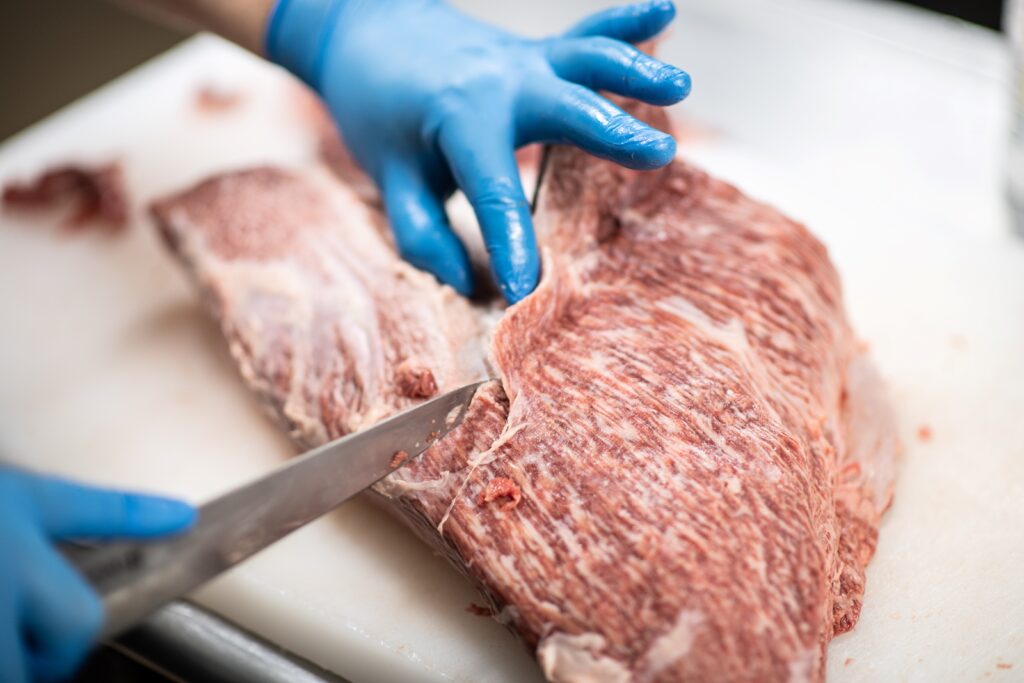
- ARAB NEWS
- 11 Jul 2025

FUKUSHIMA: Fukushima Prefecture in northeastern Japan has developed an artificial intelligence-based system for evaluating beef quality while cattle are being raised.
Usually, the quality of beef is evaluated based on the fat layer and meat color after the cattle are slaughtered.
Early and accurate assessments are expected to help determine the timing of beef shipments and reduce costs.
“We hope to boost the competitiveness of our beef products, which declined after the (March 2011) disaster” of a massive earthquake, tsunami and subsequent nuclear accident, said Meguru Hara of the Fukushima Agricultural Technology Center’s livestock research institute.
Beef products are graded based on the amount and quality of meat per animal.
Until now, ultrasound has been used in some cases to check the condition of cattle before shipment, so that they can be shipped with better meat quality.
But Hara pointed out that this method depends on the people making the assessments. “Experience is essential, and there are individual differences.”
Together with Obihiro University of Agriculture and Veterinary Medicine and others, the Fukushima government began developing the AI-based early beef assessment system in 2019.
The prefectural government and others fed the AI with ultrasound images of around 1,500 cattle aged 22 to 24 months a year to assess the quality of their meat and whether there is room for growth.
The early assessment system is expected to help livestock farmers reduce feed costs and improve the turnover rate of cattle barns, by allowing them to ship cattle early if there is little room for growth and to begin preparations to enter cattle with high ratings in competitive exhibitions.
“The AI is as good as a person with a good eye for judging meat quality,” said Isao Inukai, a 73-year-old cattle-fattening farmer in the Fukushima city of Date.
Inukai said that he used to ship animals in the order he purchased them as calves. After the introduction of the AI evaluation system, “I can rearrange the order of (cattle) to be shipped off while looking at the data,” Inukai said.
The prices of beef from Fukushima have been sluggish since the tsunami-triggered triple meltdown at Tokyo Electric Power Company Holdings Inc.’s Fukushima No. 1 power plant.
As of January this year, Fukushima beef prices were about 90 yen per kilogram lower than the national average beef price, although the margin shrank from 300 yen shortly after the nuclear accident, according to the prefectural government.
Competition among beef-producing regions is intensifying amid rising production costs reflecting surging feed and other prices.
“The key to strengthening (Fukushima beef’s) brand power is to offer high-quality cattle in a stable way and win prizes at competitive exhibitions,” said Hara of the Fukushima livestock research institute.
“We aim to improve the system’s accuracy by feeding actual (beef quality) evaluations back into the AI,” Hara said.
JIJI Press